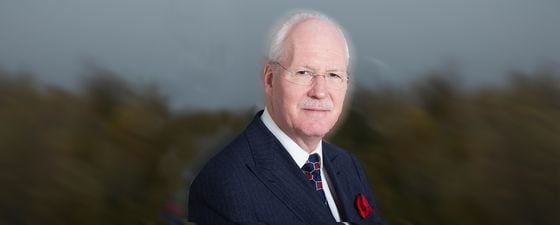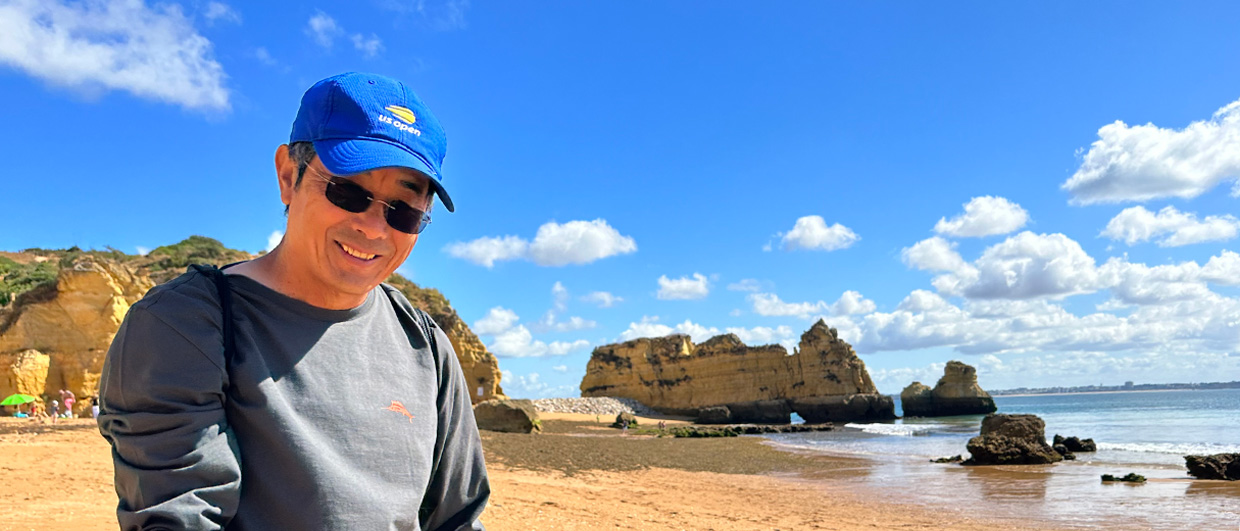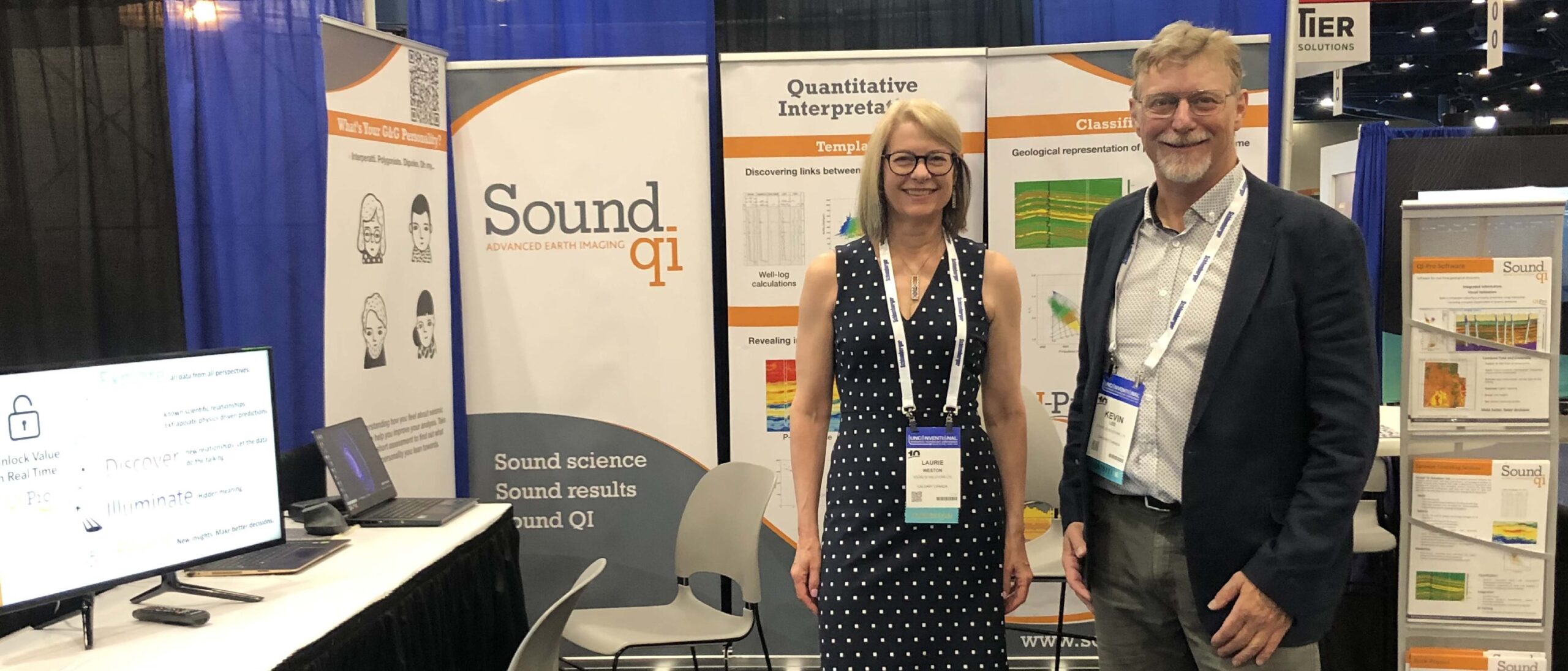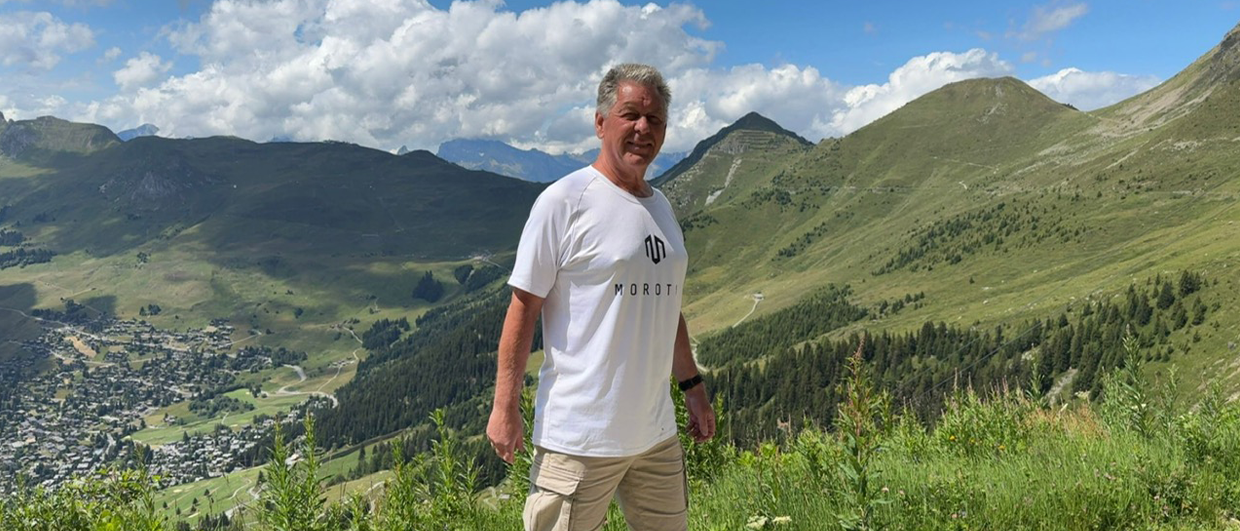Advocate for Change
Francis Gugen has had a long and varied career in the O&G business, including as regional CEO of Amerada Hess in North West Europe, Chairman of seismic operator Petroleum Geophysical Services ASA and founder of a number of successful companies. He is a member of POWERful Women and of the Energy Transition Forum and believes that the industry needs to be more proactive in dealing with the changes ahead of us.
“Energy has to be one of the most fascinating businesses to be involved in,” says Francis Gugen. “It is the biggest industry in the world; we undertake remarkable engineering feats with amazing results that the world needs; the politics and financial organization behind it is complex and fascinating. Everyone should be excited by what we do.”
Challenging Assumptions
Francis arrived in the oil and gas world via a bilingual upbringing and education in France and England and a foray into production engineering, before becoming an accountant. He was first introduced to the business as a chartered accountant with Arthur Andersen. “I was amazed by the things this industry did,” he explains. “I was working with Hess (then Amerada Hess), who were building the $1.5 billion Scott platform in the North Sea, and the statistics just staggered me. For example, if you put all the US dollar bills it took to build Scott end to end they would circle the Earth six times! Hess’s company headquarters in London was almost exactly the same size and weight as the main platform; which was put in place as a single lift, which was a record at the time. I realized that this industry performs unbelievable engineering feats, and I wanted to be part of it.”
Francis Gugen, finding ‘a different way of doing things’.
He joined Hess in 1982 when the company only had about 20 people in Europe, fulfilling various finance and business services roles, rising to become UK CEO in 1995. “We grew very fast, developing into the third largest operator on the UKCS, and it was very exciting. It was a time of great change – I remember when we created an IT department in the ’80s with one of the first Wang computers; we were well ahead of the times! A key part of the role of a CEO is to look out from the company and build relationships, as that’s how the opportunities will be found.”
Leaving Hess in 2000 because he felt ready for a change, Francis set up IGas Energy, a company focused purely on UK onshore unconventional resources. “Those were early days for unconventionals – everyone thought I was mad, including me!” he says. “But we are now a leading onshore producer/shale player in the UK with one of the largest gross acreage holdings in England.” He was also a co-founder of CH4, set up to look at the then unfashionable Southern North Sea, which was successfully sold some three years later for €225 million, making investors 7.5 times their money.
“As you can see, I don’t tend to follow the crowd; I always want to find a different way of doing things. I like to gather facts, to look for patterns and seek out and challenge the hidden assumptions behind them and then look to do things profitably in a different way. I got involved with UK unconventionals and the Southern North Sea precisely bcause they weren’t popular and I couldn’t see any reason for them not to be.”
Energy Transition
Francis Gugen is a Member of the Energy Transition Forum 2.0, an international body looking for practical ways to affect the changes needed to manage climate change. He talks passionately on the topic of the transition ahead of us. “I believe the transfer to renewable sources of energy is coming quicker than we think – though oil will have one ‘last hurrah’. The pace of change is increasing rapidly. These transformations need to happen, and we as an industry must be involved in the journey. In the Energy Transition Forum we are looking at ways of making this shift in a practical way. It’s no good aiming for perfection, however nice that would be – it would take too long, we haven’t the time.
“I believe that in this industry we don’t ask enough questions – and don’t forget, it’s that question you didn’t ask which is the important one. What are the challenges in front of us on this transition journey; what should we be doing to address them? Are we thinking ahead? Politics is changing; have we passed the apogee of globalization and what will that mean to us all? In my experience, being curious and looking for, rather than resisting, change is often a good way to make money!
“The world is being reinvented all the time,” he continues. “Artificial intelligence, the ‘internet of things’, battery science, 3D printing; these will all dramatically make a difference to our lives and those of our children and grandchildren. Technology is moving so rapidly, and I think the energy industry in particular will change hugely in the next ten years. We cannot perpetuate the past into the future. That would be a failure of imagination akin to that of the IBM President who in 1943 predicted that the world would only ever need five computers!
“Ways of doing business are also changing. Bitcoins and monetization of unutilized energy capacity are two diverse examples of new business mechanisms. We must put the parts of the energy conversation together and stop looking at it in little boxes. We also need better logistics and should let players from other industries come into O&G and shake it up.”
Diversity is Key
Francis Gugen was an invited speaker at the Petex 2016 Forum, ‘What is the new normal? Just another cycle or a structural change in the hydrocarbon industry?’ (Source: www.karma-creative.co.uk)
“I was brought up sharing a number of European cultures and languages,” says Francis, who as well as French and English, also speaks good German and some Spanish. “I think this gives me a different perspective on life, possibly making me tend to look for a different way of doing things.”
Coming from this background, it is no surprise that he is an enthusiastic believer in diversity in the workplace, so that people from different backgrounds, countries and cultures can bounce ideas off each other. He is a founder member of POWERful Women, a UK government-born initiative which seeks to redress the paucity of women at energy’s top table by bringing together a mix of industry, academic and political leaders. “At the moment, only some 6% of senior managers in energy are female. However, I don’t encourage and promote the idea of more women in positions of authority in the O&G industry because I think men are bad managers or to be ‘nice’ to women,” he insists. “I strongly believe that redressing the gender imbalance is a way for the business to be more successful and to make money. If we are going to embark on major changes in the world’s biggest industry, we need diversity of viewpoints. From my own experience I have learnt that a board with a number of women on it is one which listens better, is more collaborative and tends to better learn from its mistakes.
“To increase diversity requires an acceptance that the culture of the industry needs to change, which isn’t easy. Back in the 1990s I was Chair of CRINE, a UKCS cost-reduction initiative, designed as a collaborative effort to find ways of reducing waste and inefficiency in the UKCS. This had a radical impact on the safety, efficiency and economics of developing and operating North Sea fields, but ultimately didn’t work as well as it should have because we failed to change the culture of the industry. In this industry we do have a reputation for being quite slow to adopt new technologies, however much we need to do so to progress – though to be fair to ourselves, when you consider the costs involved in drilling wells, a mistake can be very expensive, so we understandably tend to be a little conservative.”
Range of Interests
Although most of Francis Gugen’s working life has been involved in the oil industry, he has interests in a range of other areas, including being Chair and founder of an innovative company called Fraudscreen, which produces an honesty index using data analytics to enable clients to distinguish ‘will pay’ from ‘won’t pay’ customers. He is also Chairman of Raft, a world-renowned medical research charity that helps people who have suffered severe tissue damage such as burns.
“I have been involved for many years now with this wonderful charity, which was formed just a couple of weeks after the Piper Alpha disaster in the North Sea in 1988, in which 167 people lost their lives and many suffered terrible burns,” he explains. “RAFT (Restoration of Appearance and Function Trust) develops pioneering new treatments for people who have suffered damage to skin or bones through accident, disease or birth abnormalities. The treatments that the plastic surgeons undertake can sometimes save lives and often make significant improvements to a patient’s quality of life and independence. RAFT scientists have potentially found methods of closing wounds without skin grafts, for example, and they also developed a therapeutic bed, based on hovercraft technology, which allows burns patients to ‘float’ on air. About 25% of UK consultant plastic surgeons have been trained by RAFT. The charity has now spawned SML, a biotech company to set up to commercialize some of its research and to attract philanthropic investment.
“I like the fact that this charity is science based. It makes things happen – and I like to make things happen rather than just talk about them.”
Industry Ambassadors
“Energy has dramatically changed the world and we in the oil and gas industry have played an important role in that change – we should be proud of that. We also need to tell the world what we do, but in easy language and using simple imagery that everyone can understand – like my description of the Scott platform. We don’t use this sort of imagery, and we need to learn from other science-based industries like pharmaceuticals and telecoms, who communicate what they do much more effectively. Everyone working in the oil and gas industry should be an ambassador for what they do.”
And he adds: “Remember that famous comment that Sheikh Yemeni made in 1980; ‘the Stone Age didn’t end because we ran out of stones.’ The world is changing fast, and the energy industry is changing with it. Be sure that you are all part of this journey.





